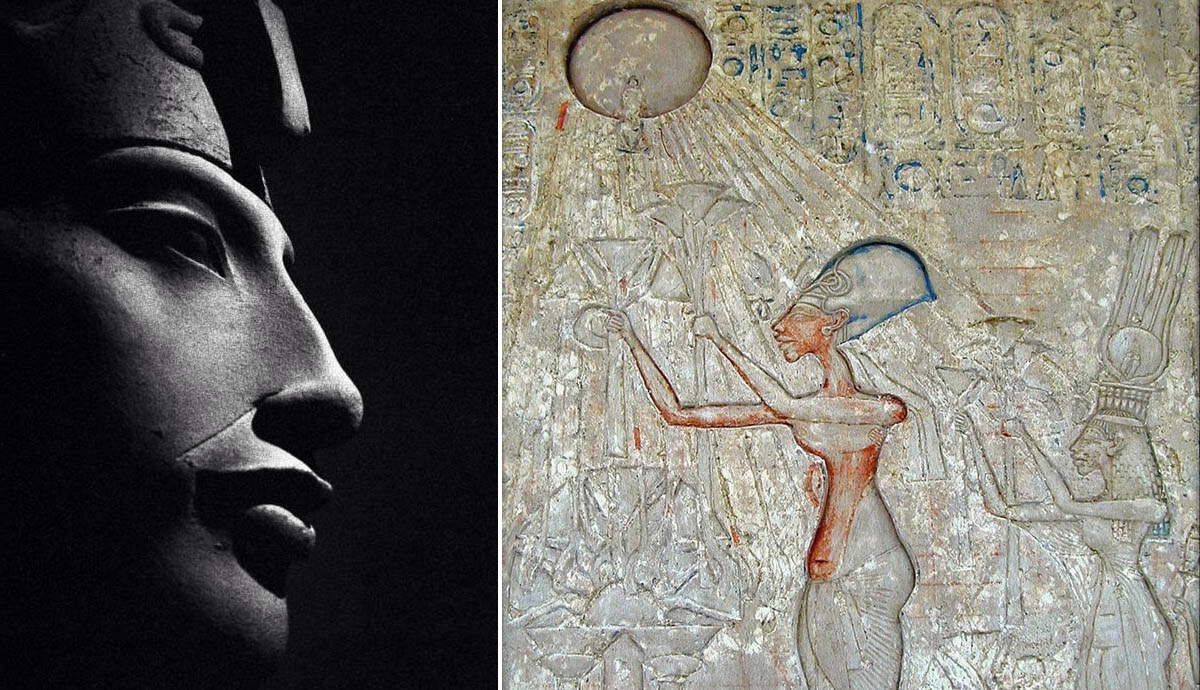
Atenism was a revolutionary monotheistic religion established by Pharaoh Akhenaten during ancient Egypt's 18th dynasty. This faith centered around the worship of Aten, the sun disk, and marked a significant departure from Egypt's traditional polytheistic beliefs. Akhenaten's radical shift aimed to consolidate religious power and promote a singular divine entity. Atenism emphasized the sun's life-giving energy, portraying Aten as the sole creator and sustainer of life. Despite its brief prominence, this religion left a lasting impact on Egyptian culture and history. Curious about the unique aspects of Atenism? Here are 25 intriguing facts that shed light on this ancient faith.
What is Atenism?
Atenism was a monotheistic religion in ancient Egypt, centered around the worship of Aten, the sun disk. It was introduced by Pharaoh Akhenaten during the 18th Dynasty. Here are some fascinating facts about this unique belief system.
-
Atenism's Founder: Pharaoh Akhenaten, originally named Amenhotep IV, founded Atenism. He changed his name to reflect his devotion to Aten.
-
Monotheism: Atenism is considered one of the earliest forms of monotheism, focusing solely on Aten, unlike the polytheistic traditions of ancient Egypt.
-
Capital City: Akhenaten established a new capital city called Akhetaten, now known as Amarna, dedicated to Aten.
-
Artistic Revolution: Atenism brought a significant change in Egyptian art, emphasizing naturalism and depicting the royal family in more intimate and realistic scenes.
-
Hymn to Aten: The "Great Hymn to the Aten" is a famous piece of literature from this period, praising Aten's creation and sustenance of life.
Akhenaten's Radical Changes
Akhenaten's reign marked a period of radical religious and cultural changes. These changes were both revolutionary and controversial.
-
Temple Construction: Akhenaten built open-air temples to Aten, unlike the enclosed temples dedicated to other gods.
-
Religious Persecution: He ordered the defacement of Amun's temples and other gods, promoting Aten as the sole deity.
-
Priesthood: The traditional priesthood lost power and influence as Akhenaten centralized religious practices around Aten.
-
Royal Titles: Akhenaten and his queen, Nefertiti, were often depicted as the sole intermediaries between Aten and the people.
-
Sun Disk Symbolism: Aten was represented as a sun disk with rays ending in hands, symbolizing the god's life-giving power.
Atenism's Decline
After Akhenaten's death, Atenism quickly declined, and Egypt returned to its traditional religious practices.
-
Tutankhamun's Reign: Akhenaten's successor, Tutankhamun, restored the old gods and moved the capital back to Thebes.
-
Name Erasure: Akhenaten's name and images were systematically erased from monuments and records.
-
Amun's Revival: The cult of Amun regained prominence, and temples to Aten were abandoned or repurposed.
-
Historical Records: Later pharaohs tried to erase Akhenaten's legacy, referring to him as the "heretic king."
-
Archaeological Discoveries: Modern archaeology has uncovered much about Atenism, particularly through excavations at Amarna.
Cultural Impact of Atenism
Despite its short lifespan, Atenism had a lasting impact on Egyptian culture and beyond.
-
Artistic Legacy: The artistic styles developed during Akhenaten's reign influenced later Egyptian art.
-
Literary Contributions: Texts like the "Great Hymn to the Aten" provide insight into ancient Egyptian religious thought.
-
Historical Curiosity: Atenism remains a subject of fascination for historians and scholars studying ancient religions.
-
Religious Studies: Atenism is often discussed in the context of the development of monotheistic religions.
-
Modern Interpretations: Some modern spiritual movements draw inspiration from Atenism's focus on a single, life-giving deity.
Atenism in Popular Culture
Atenism has also found its way into modern popular culture, inspiring various forms of media.
-
Literature: Novels and historical fiction often explore Akhenaten's reign and the rise of Atenism.
-
Movies and TV: Documentaries and films sometimes depict Akhenaten's life and his religious reforms.
-
Music: Some musical works reference Atenism, drawing on its themes of sun worship and monotheism.
-
Video Games: Games set in ancient Egypt occasionally feature Atenism as part of their storyline.
-
Art Exhibitions: Museums and galleries sometimes showcase artifacts from the Amarna period, highlighting Atenism's unique contributions to Egyptian history.
Final Thoughts on Atenism
Atenism, the ancient Egyptian monotheistic religion, offers a fascinating glimpse into a unique period of history. Founded by Pharaoh Akhenaten, it centered around the worship of Aten, the sun disk. This radical shift from polytheism to monotheism was short-lived, ending soon after Akhenaten's death. The religion's emphasis on light and life, as well as its influence on later monotheistic faiths, remains a topic of interest for historians and scholars. Despite its brief existence, Atenism left a lasting impact on Egyptian culture and religious thought. Understanding these facts about Atenism not only enriches our knowledge of ancient Egypt but also highlights the complexities and innovations of human belief systems. Whether you're a history buff or just curious, Atenism's story is a testament to the ever-evolving nature of religion and culture.
Was this page helpful?
Our commitment to delivering trustworthy and engaging content is at the heart of what we do. Each fact on our site is contributed by real users like you, bringing a wealth of diverse insights and information. To ensure the highest standards of accuracy and reliability, our dedicated editors meticulously review each submission. This process guarantees that the facts we share are not only fascinating but also credible. Trust in our commitment to quality and authenticity as you explore and learn with us.


